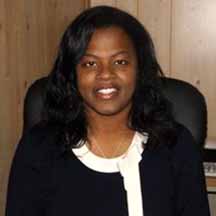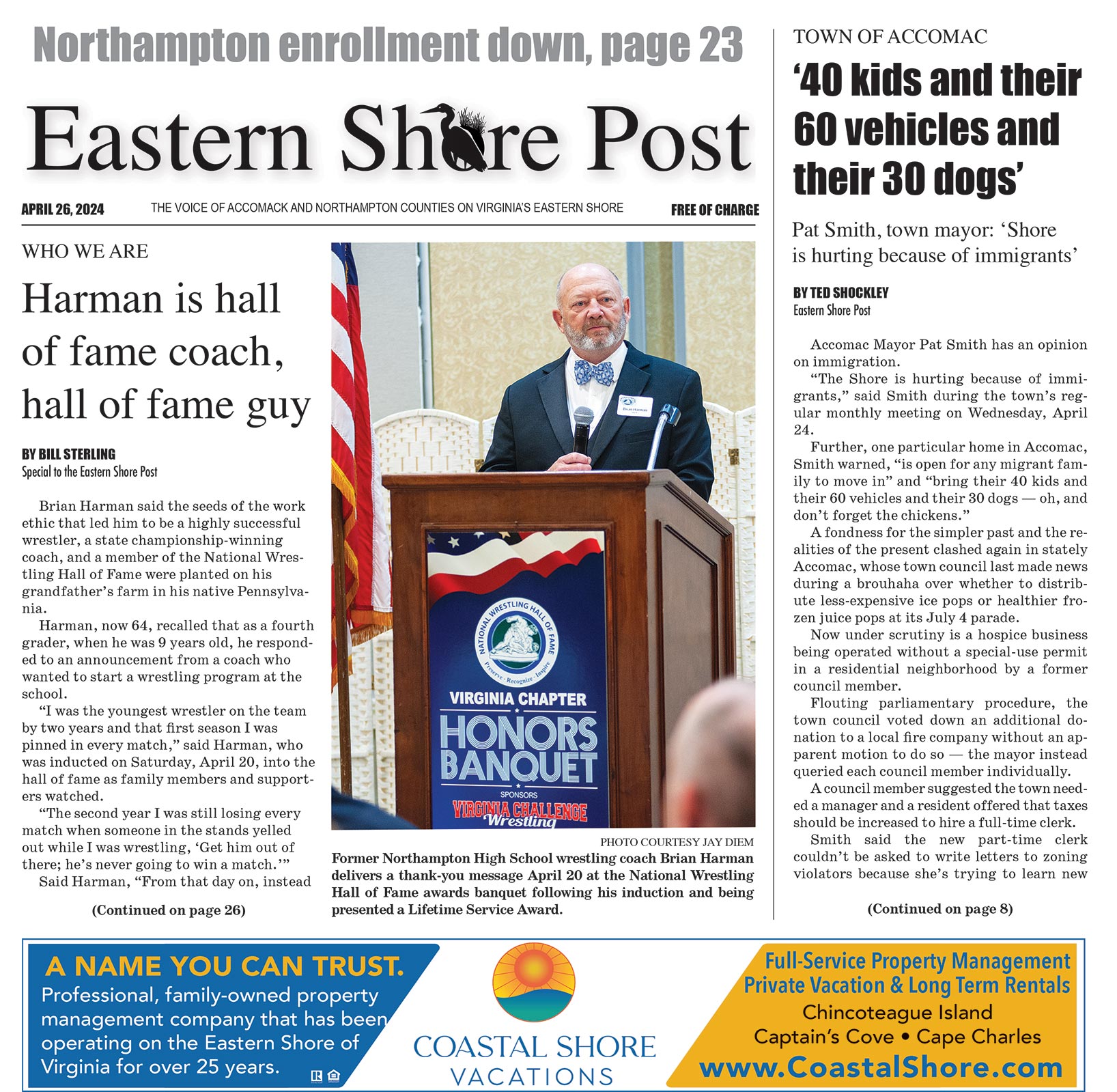By Stefanie Jackson – This week, news publications across the country observed Tuesday, Aug. 20, 2019, as the 400th anniversary of the beginning of slavery in America, suggesting the date marks the beginning of African American history. But that’s “not true,” said Ava Wise, a United Nations delegate from the Eastern Shore of Virginia.
According to the Virginia Department of Historic Resources, on Aug. 20, 1619, “twenty and odd” African slaves arrived on a Dutch ship in Point Comfort, known today as Hampton, Va.
But the Dutch, French, and Spanish have all documented the presence of Africans in the Americas more than 100 years prior, and those Africans weren’t all slaves, Wise said.
For example, Juan Garrido, an African conquistador, is known as the first free black person to set foot on American soil. He arrived in Puerto Rico in 1508 and traveled to Florida with Juan Ponce de Leon around 1513.
Teaching African American history to her fellow U.N. delegates is essential to Wise’s work on the U.N. Economic and Social Council, which includes raising awareness of the U.S. “southern black belt,” a crescent that connects 600 poor, rural counties where a majority of descendants of former black slaves live, and the effects of systemic oppression and poverty still resonate more than 50 years after civil rights legislation was passed.
Accomack and Northampton counties are at the northern tip of the crescent.
“A lot of people don’t like to hear this,” but America’s southern black belt closely resembles a developing nation, sharing the same issues with poverty, education, health, and mortality rates, Wise said.
As part of her work with the U.N., Wise wrote a document called “Understanding the Role of National Identity in Global Politics.” It referenced laws passed in America in the 1600s that eroded the personal rights and identities of African peoples.
America gradually declined into slavery – it didn’t happen overnight, Wise said.
She noted an act passed in November 1682 that, according to the University of Virginia website, Virtual Jamestown, “joined Native Americans and Africans into one racial category – ‘negroes and other slaves.’”
It’s one reason why, in America, generations of African descendants have disagreed on how they should be identified – Negro, colored, black, or African American, Wise said.
Other terms used have included POC (people of color) and ADOS (American descendants of slaves).
The lack of identity is “stifling our ability to move beyond,” Wise said.
Another of Wise’s recent projects was a reparations exhibit shown at the U.N. headquarters in New York from July 8 to July 18. The video compilation included an excerpt from a speech Martin Luther King Jr. made in preparation for the Poor People’s March on Washington of 1968:
“At the very same time that America refused to give the Negro any land through an act of Congress, our government was giving away millions of acres of land in the West and the Midwest.
“But not only did they give the land, they built land grant colleges with government money to teach them how to farm.
“Not only that, they provided county agents to further their expertise in farming.
“Not only that, they provided low interest rates in order that they could mechanize their farms.
“Not only that, today, many of these people are receiving millions of dollars in federal subsidies not to farm, and they’re the very people telling the black man that he ought to lift himself by his own bootstraps. This is what we are faced with, and this is the reality.
“Now, when we come to Washington in this campaign, we are coming to get our check.”
But how will disadvantaged groups around the world “get their check” and be lifted out of poverty?
The U.N. held a summit in 2000 that resulted in the development of eight Millennium Development Goals to reduce extreme poverty by 2015.
In 2015, those goals were expanded to 17 with the U.N.’s adoption of the 2030 Agenda for Sustainable Development.
Wise led the group that drafted a position paper on the eighth goal, “decent work and economic growth.”
That goal includes achieving 7% economic growth in all countries by 2030.
But reaching that goal may not positively affect the most vulnerable populations, Wise cautioned.
In the early 2000s, Wise was invited by the University of Georgia to participate in a study on poverty in America’s southern black belt, commissioned by U.S. Senator Zell Miller, of Georgia.
The study, “Dismantling Persistent Poverty in the Southeastern United States,” focused on seven of 11 states east of the Mississippi River, including Virginia.
Through her participation in the study, Wise learned that the conventional, “build it and they will come” strategy to reduce poverty – building infrastructure to attract industries that create jobs – doesn’t necessarily help the people who already live in the areas that need economic growth.
One example is Appalachia, a region that includes all of West Virginia and parts of 12 other states. The economic condition is largely unchanged there, even though much of the area has been well-developed, she said.
Wise sees the need to “equip the local labor force to be able to take advantage” of economic developments. Workforce development is among the community’s needs. If a major manufacturer came to the area, “we’d be unprepared,” she said.
The groundbreaking University of Georgia study remains relevant and is still used by Congress members today, Wise said.
Sometime after the study, Wise’s thoughts turned to three communities that are all committed to the issue of poverty but don’t always communicate well with each other: the academics who collect and analyze data on poverty, the legislators who make policies that impact people in poverty, and the community-based organizations that directly assist people in poverty.
She realized the United Nations is one forum where all three of those communities come together. She first considered applying for consultative status with the U.N. Economic and Social Council (ECOSOC) around 2004 or 2005.
Wise obtained temporary credentials with the U.N. in 2014, the same year she spoke at an ECOSOC panel and raised concerns that the council was planning an agenda that focused solely on urban areas and excluded rural areas.
Rural areas are not a “wasteland” – they are important to the “ecosystem of economics,” Wise said in a recent interview.
More people live in urban areas, yet rural areas are still significant, she said.
Wise officially received special consultative status with ECOSOC through her organization, the United States Sustainable Development Corporation, in 2015.
Few other U.N. delegates from the United States are engaged in efforts to eliminate poverty in their country. Most the of U.S. non-governmental organizations (NGOs) associated with the U.N. are large foundations that focus their efforts abroad, she said. She elaborates in her recently published article, “The Global Community Met To Address Goals To Change the World By 2030, But Where Was America?”
Wise plans to continue her consultative work with the U.N., submitting oral and written statements, creating exhibits, and hosting side events.
“You don’t change the world overnight, you plug away at it from your corner of the world as best you can.”



